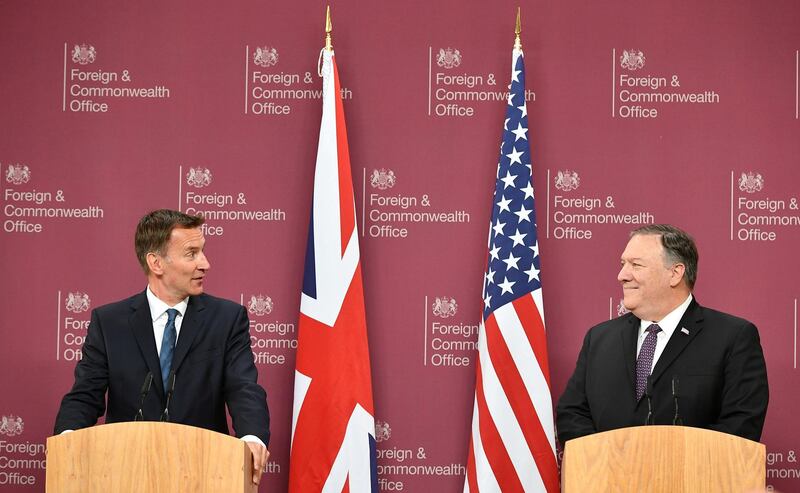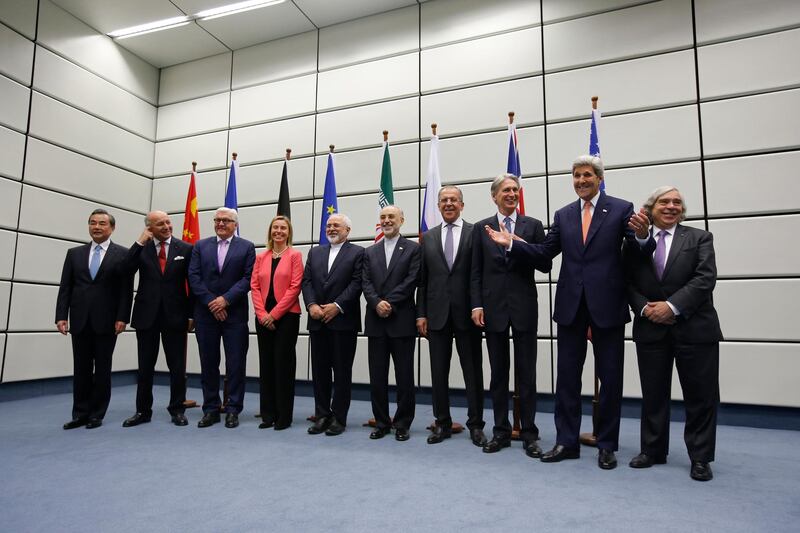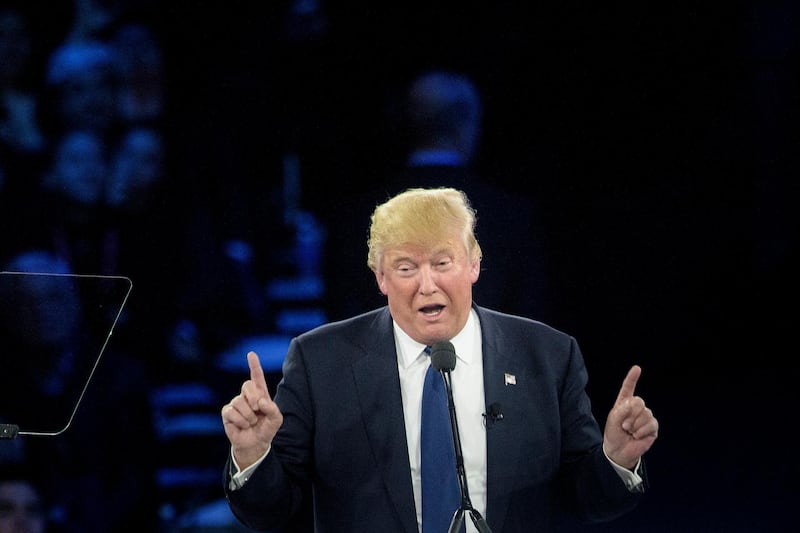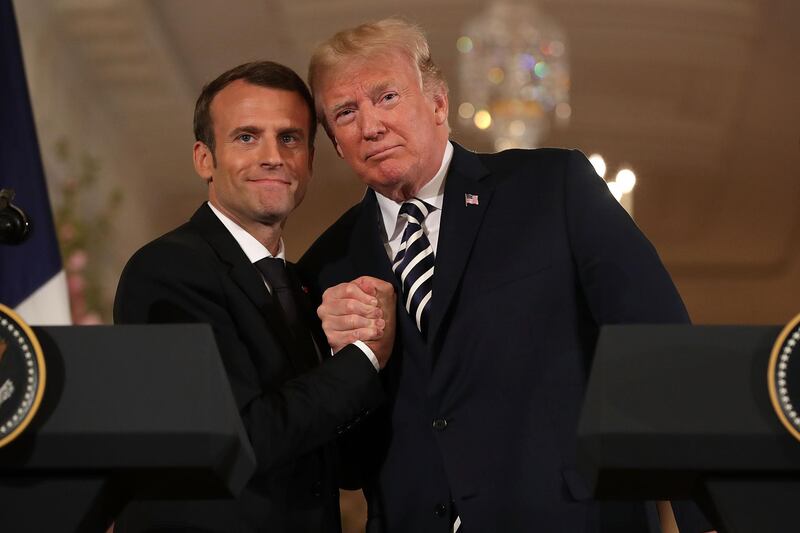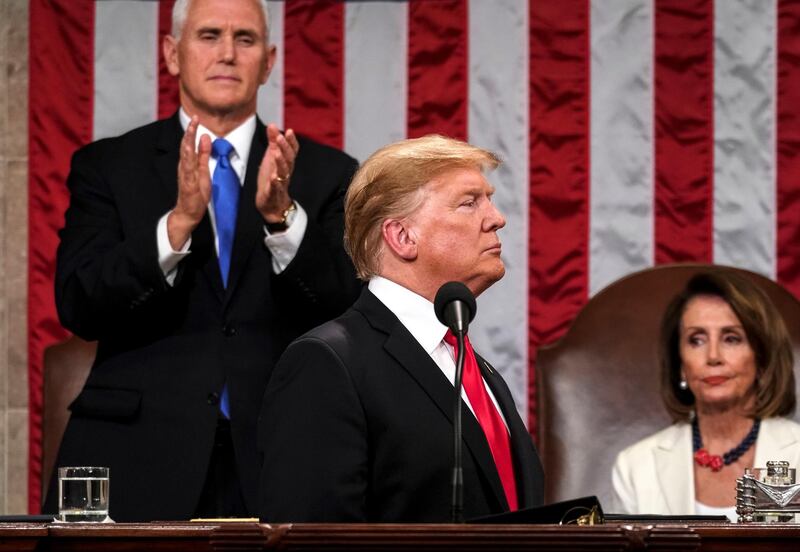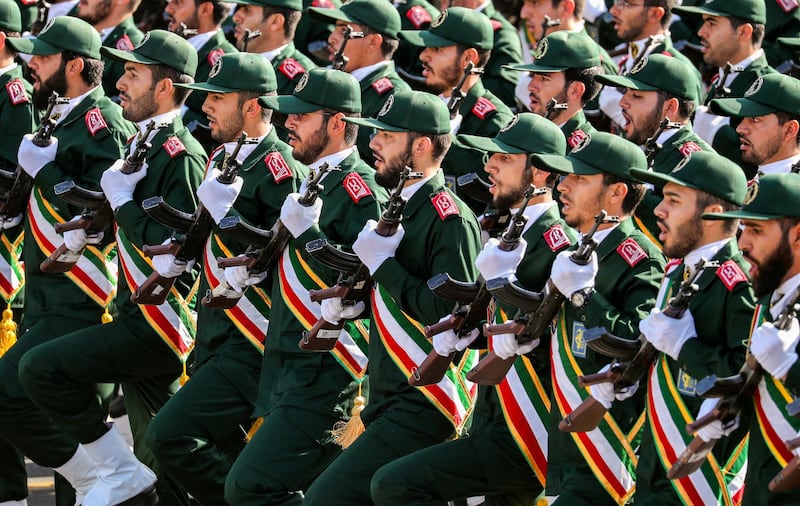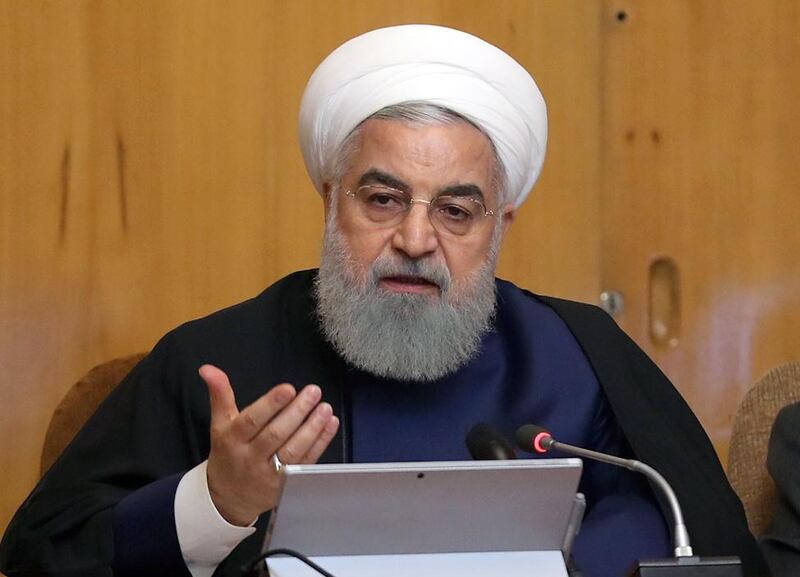US Secretary of State Mike Pompeo said on Wednesday that Washington will push back the threat of an "evil" Iran, addressing its suspension of a landmark nuclear deal while in Britain on an official visit.
He was in the country to meet with British Prime Minister Theresa May and his British counterpart, Foreign Secretary Jeremy Hunt, to discuss the status of the "special relationship" between the nations.
"Not far from here are the Churchill war rooms, where a leader of this great country stared evil in the face and recognised the threat that evil presented to the entire world," Mr Pompeo said during a joint press conference at the UK Foreign Office.
"We are working together to push back against that threat," the US official said, referring to Iran's nuclear capabilities.
Mr Pompeo's first official visit to the UK comes amid heightened tensions over the US decision to pull out from the Joint Comprehensive Plan of Action (JCPOA), known commonly as the Iran nuclear deal, and over potential business agreements with Chinese tech company Huawei.
Mr Hunt said his country works "incredibly closely" to counter Iran's "destabilising activity in the Middle East."
"Whilst we both agree that Iran must never be able to acquire a nuclear weapon, it is no secret that we have a different approach on how to achieve that," he said.
The American official arrived in the British capital after cancelling a trip to Germany to make an unannounced visit to Baghdad, where he warned Iraqi officials of imminent threats to American interests in the Middle East. Mr Trump is due to make a state visit to the United Kingdom in June.
The US military said on Tuesday B-52 bombers would be part of additional forces being sent to the Middle East to counter what the administration of US President Donald Trump says are “clear indications” of threats from Iran to US forces there.
The United States on May 3 announced it would not extend two sanctions waivers regarding Iran’s nuclear activities as part of efforts to force Tehran to stop producing low-enriched uranium.
Iran said earlier Wednesday that it would partially suspend its compliance with the 2015 nuclear deal from which President Donald Trump withdrew last year. Britain, as well as Germany, France, Britain, Russia and China, remains committed to the deal.
Junior foreign office minister Mark Field told Britain's parliament that the nuclear deal was the "only game in town" and that Britain and other European powers wanted it to succeed. But he added that the move from Rouhani was an "unwelcome step."
"We are not at this stage talking about reimposing sanctions, but one has to remember that they were of course lifted in exchange for the nuclear restrictions," he said.
"Should Iran cease meeting its nuclear commitments, there would of course be consequences. But for so long as Iran keeps to its commitments, then so too will the United Kingdom."
Mr Pompeo is also rumoured to have warned the UK against allowing Chinese firm Huawei to access critical infrastructure.
The US, which is the UK's leading intelligence partner, has said it will not give Huawei any 5G contracts, amid concerns it could be used to spy on the US.
Should Huawei be involved in building the UK's 5G mobile network and have access to critical data, the US may reduce its presence in the UK.
According to a recent leak that led to the dismissal of defence secretary Gavin Williamson, the UK agreed to allow the Chinese firm to participate in non-core elements of the 5G programme.
During the press conference, Mr Pompeo stressed the UK’s role in countering China’s influence. “As a historic maritime power, Britain has shown leadership in standing up to China’s unlawful behaviour in the South China Sea, and we urge the British government to be equally vigilant and vocal against the host of other activities that undermine the sovereignty of all nations,” he said.
On the one-day visit, both leaders also took part in a round-table discussion on religious freedom chaired by the Archbishop of Canterbury Justin Welby. During this first meeting with Mr Hunt and British faith leaders, Mr Pompeo told participants that the Trump administration is committed to the rights of all people to worship as they please.
"In the United States it's in our Constitution, the First Amendment, it's central to our founding," he said.
Mr Welby thanked Mr Pompeo for the administration's attention to the matter and noted that Christians in the Middle East and Africa and religious minorities everywhere are under threat. He also sounded a note of caution by telling the US Secretary of State that foreign military inventions often have severe consequences for religious freedoms.
"Where the interests of religious minorities are concerned, foreign interventions can often have very serious, long-term [impacts]," he said. Mr Pompeo did not reply to Mr Welby's comment.
